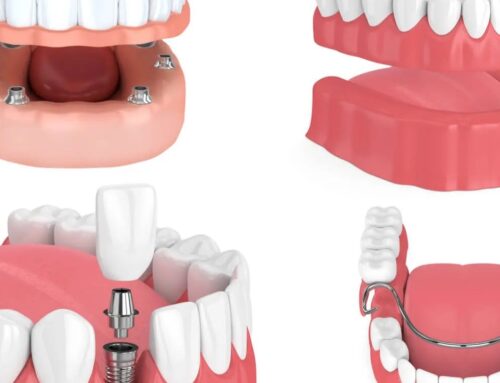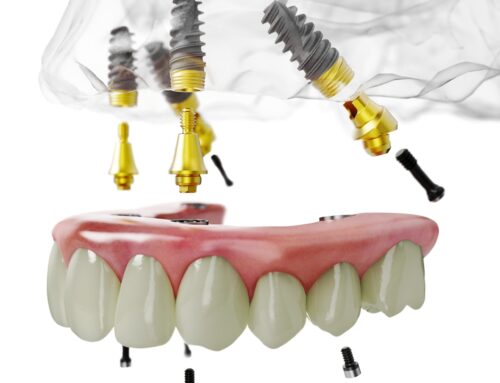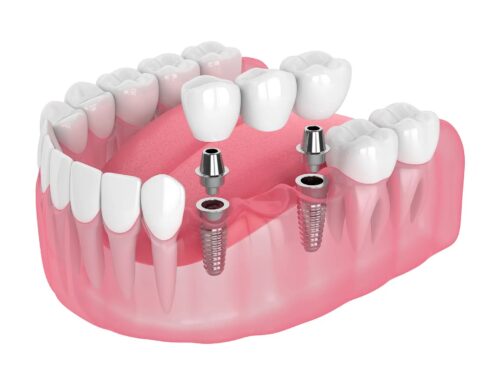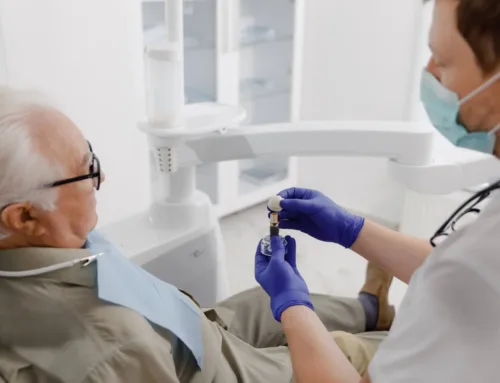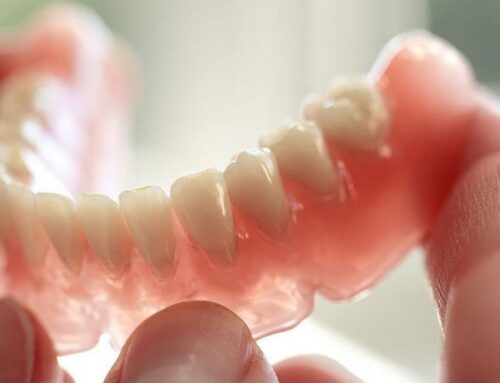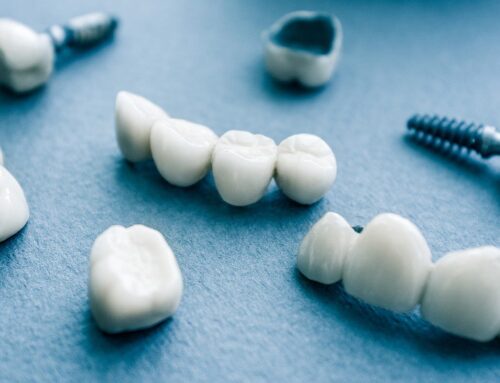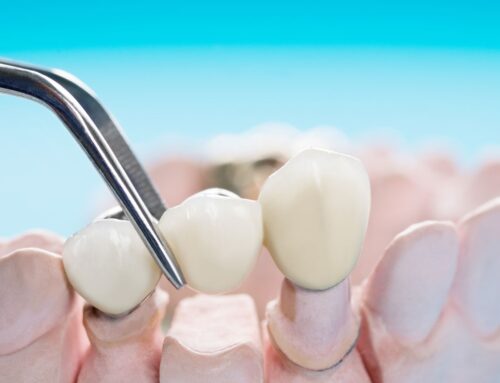Preserve Your Smile & Prevent Bone Loss
When you think about oral health, most people think about teeth and gums. However, your jawbone plays a crucial role in supporting your teeth and maintaining good overall oral health.
Various factors can play a huge role in the overall condition of your jawbone and oral health. Aging, trauma, and dental conditions such as periodontal disease can all contribute to bone loss in the jaw.
When you are young, your bones are growing rapidly. Unfortunately, as we age the growth of our bones slows. By age thirty, most people have reached their peak bone mass. However, you can continue to build bone density into adulthood through a healthy diet, good oral health, and exercise.
Loss of bone density has serious implications, especially when looking at dental implants as a tooth replacement solution. In this article we’ll discuss the importance of preventing bone loss in the jaw and explore effective strategies to help preserve bone density to ensure successful dental implant procedures in the future.
How Loosing a Tooth Impacts Your Bone Density
In a healthy mouth, daily chewing stimulates the jawbone and helps keep it strong. If you lose a tooth, the section of jaw it was connected to can begin to recede, causing the other teeth to move around and increase pressure, which contributes to gum disease.
Untreated gingivitis can lead to periodontitis, which is an infection in the gums that eats away at the soft tissue before deteriorating the surrounding bone structure.
The Impact of Bone Loss on Dental Implants
The jawbone essentially acts as the foundation for dental implants, providing necessary stability and support for the artificial teeth. When there is significant bone loss in your jaw, whether it’s from natural aging or other factors, it compromises the feasibility and success of dental implants. If there is inadequate support for implants due to insufficient bone density, you run the risk of implant failure, discomfort, and other potential complications.
Without adequate bone volume in the jaw, dental implants may not properly integrate with the surrounding bone tissue which hinders long-term functionality and stability. That’s why preventing bone loss from occurring in the first place is so important.
Learn more about immediate and delayed placement implants here.
Causes of Bone Loss
Understanding the underlying causes of bone loss allows individuals to take proactive steps to mitigate bone loss and improve their overall oral health. There are many things that can contribute to bone loss in the jaw, including:
Periodontal Disease
Serious or advanced stage gum disease can damage the supporting structures of the teeth and penetrate deep enough to affect the jawbone.
Tooth Loss
When a tooth is lost and not replaced in adequate time, the stimulation required to maintain bone density in the jaw is diminished. This can lead to bone resorption, which is when the minerals found in your bones are absorbed back into your blood, disintegrating the existing bone.
Injury or Trauma
Injury or accidents to your jaw can result in bone loss or damage.
Osteoporosis
Osteoporosis is a condition that affects the bone density in your entire body. Over 80% of fractures that occur in people aged 50+ are caused by osteoporosis. Osteoporosis can affect your jawbone in the same way it would a hip or wrist. Learn more about bone health here.
Poor Oral Hygiene
Neglecting your oral hygiene can result in cavities, gum disease, and subsequent bone loss.
How To Minimize Bone Loss
- Maintain Strong Oral Hygiene
Brushing your teeth a minimum of two times a day, flossing daily, using mouthwash, and scheduling routine dental appointments can help to prevent gum disease or address existing gum disease promptly to help avoid bone loss.
Many people will not realize that there are any issues with the underlying bone structure in their jaw until more serious issues develop, making bone loss density harder to treat. A dental professional will be able to spot the early warning signs, and address them, to prevent serious bone loss, which is why regularly scheduled appointments are so crucial for proper oral hygiene.
- Eat A Healthy Diet
Bone is essentially made from two building blocks – collagen and calcium phosphate. Collagen is a protein found throughout the body that unfortunately diminishes as we age. Our ability to replenish collagen decreases by 1-1.5% every year. Calcium phosphate is a mineral compound made up of calcium and phosphorus. Both collagen and calcium phosphate are ingested through certain foods or supplements. The NIH (National Institutes of Health) recommend all adults get at least 1,000 mg of calcium a day.
Calcium requires vitamin D in order to properly be absorbed into the body. Therefore, it is recommended that you also get an adequate amount of vitamin D on a daily basis. Vitamin D comes from sunlight, so supplementation is recommended for those living in colder climates that experience less sunlight in the winter months.
Vitamin C and A are also important building blocks for teeth and bones. Eating a healthy diet full of vitamins and minerals will contribute to strong bones and healthy teeth.
- Avoid Smoking & Tobacco Products
Tobacco use and smoking of any kind can reduce blood flow to the gums and jawbone which can slow healing, speed infection spreading and accelerate bone loss. Additionally, smoking can increase your risk of gum problems, mouth cancer, tooth loss, tooth decay, and complications after oral surgery, as well as stain your teeth.
- Exercise Regularly
Regular exercise, especially weightlifting, can improve bone density throughout your entire body. Exercise also reduces the rate of bone loss and helps to preserve bone tissue as you age.
- Address Tooth Loss Promptly
Being proactive in getting dental implants or other restorative options if you lose a tooth will prevent bone resorption or bone loss.
The bottom line is you can’t grow bone back, so it’s very important to introduce proactive measures into your lifestyle now. By taking the above steps, you can reduce the risk of bone loss in both your jaw and entire body. Strong nutrition, exercise, and oral health are the best ways to reduce future bone loss.
Bone Grafting
If significant bone loss has already occurred, then bone grafting might be the next option for you. A bone graft will augment the jawbone and facilitate a successful dental implant placement. Essentially, a bone graft is a transplant of either healthy bone from another part of your body or a synthetic material to the area of your jaw that requires strengthening.
Before undergoing a bone grafting procedure, the dentist will conduct a thorough evaluation of your oral health and assess the extent of bone loss. A customized treatment plan will be created based on these findings.
During the procedure, the dentist will make an incision in the gums to access the jawbone. The bone graft materials (either synthetic or bone from another location) is then placed and secured in the proper position. It can take several months for the new bone tissue to mature and properly integrate.
The grafted bone fuses with the existing jawbone to increase the density and volume of your jawbone. This is called osseointegration. If the bone graft does not properly fuse to the existing bone, then the procedure has failed.
Once the grafted bone has had time to properly heal and integrate, the dentist will place the necessary dental implants into your mouth.
Bone Grafting Can Be Expensive
The cost of a bone graft will vary based on different factors, such as:
- Extent of Bone Loss: The amount of materials needed, and the severity of your bone loss will have a big impact on the cost of the procedure.
- Type of Material Used: The graft material used will affect the cost of the procedure. The four options are autogenous (from the patients’ body), allograft (from a human donor), xenograft (from animal tissue), or a synthetic graft material.
- Complexity of Surgery: Sometimes bone grafts will require additional procedures such as sinus lift augmentation, which can impact the total cost.
- Provider: Dental providers vary in cost and expertise, so it’s important to find the right medical provider for your needs and budget.
Jawbone bone grafts are complex. You want to ensure you are using a qualified dental professional who has experience performing them. The dentist or oral surgeon that you select should be able to walk you through the entire process and give you a rough estimate of costs.
Be Proactive About Preventative Measures
Preserving bone density in the jaw is crucial for maintaining good oral health. It will determine how complex and how costly future dental implant procedures are. By properly understanding the causes of bone loss and implementing preventative measures, you can minimize your risk of complications.
If you are already facing significant bone loss or have concerns about your bone density, it’s important to book a dentist appointment as soon as you can to help minimize bone loss and discuss your options. Bone grafting offers a viable solution to augment your jawbone, reduce continued bone loss, and stabilize dental implants. Investing in these procedures can enhance your oral function, aesthetics, and overall quality of life.
Everyone deserves to have a healthy and functional smile. With the right approach, you can safeguard your oral health for years to come. If you have any concerns about your oral health, book an appointment with Georgian Dental today to have them addressed. Since 1979 we’ve been working with the community to keep smiles beautiful and mouths healthy.
Appointment Request
If you’re interested in any of our procedures, and would like to meet with one of our dentists to discuss options, costs and get additional information, complete this short form and we’ll give you a call to arrange for a no-obligation appointment at our Barrie clinic.

